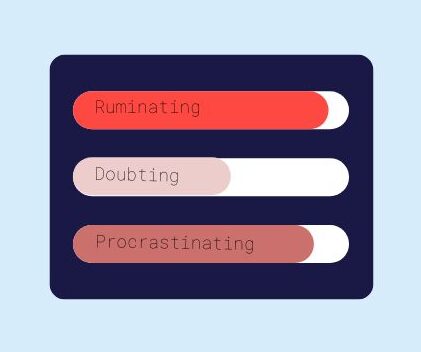
I hope it’s okay to chime in about the recent book I published “Escaping the Emotional Rollercoaster: ACT for the Emotionally Sensitive” since there have been really interested comments about similarities and differences with the terms “highly sensitive person.”
To start, I would like to clarify that a Highly Sensitive Person is not the same as a Super-feeler- as it has pinpointed in the literature about highly sensitive people, it’s quite an old concept and it has been primarily focused on people with sensitive problems due to “sensory processing sensitivity.”
When using the term “super-feelers,” I usually refer to people that “feel too much, too quick, and act too soon” as if they have an emotional switch that goes on and off at any time, and makes it challenging for them to choose their behavioral responses in a particular setting. The academic term is emotion regulation problems but the challenge is that the concept of emotion regulation has been usually associated with borderline personality disorder (BPD), which in my humble opinion is not necessarily the case.
I’m a big proponent of:
1. Normalizing emotion regulation as a natural, regular, and universal human process that we all go through, not only clients with BPD. Think about your day for instance. Didn’t you have a feeling or emotion, whether mild, moderate, or intense, which you found yourself having to adjust to? Didn’t you have urges to take action based on that particular feeling? If you recall your day again, didn’t you make a face, move around, or stand up when having a feeling? The truth is that we’re constantly adjusting our responses to our emotions, sometimes effectively, successfully, and in a manner consistent with the person we want to be, but at other times, we just become puppets of our emotions.
2. Deconstructing the idea that emotion regulation problems are exclusive to clients with Borderline Personality Disorder (BPD). There are many other clinical presentations––PTSD, OCD, phobias, Asperger’s disorder, and substance abuse, to name a few, in which clients significantly struggle with managing their behavioral responses to their feelings.
3. Understanding emotion regulation––not as a dichotomous construct in which a person either has emotion regulation problems or not- but as a continuum in which a person has different degrees of difficulties with handling different emotional states.
4. Rejecting the idea that emotions are “causes of behavior” and instead, proposing that “fusion with the story or rule about the emotion” causes behavior.
5. Challenging the idea that behavioral dysregulation only refers to extreme impulsive behaviors, such as self-injury, suicidal gestures, excessive drinking, and instead introducing the notion that it also refers to a pattern of unworkable behaviors that are inconsistent with a person’s values and vary in degrees from mild to severe.
6. Applying Acceptance and Commitment Therapy (ACT) for the treatment of emotion regulation because it’s flexibility, process-based approach, and uniqueness in understanding human behavior within a context in which “workability” is really what matters.
In terms of applications of ACT for emotion regulation: I’m excited to say that there have been already 5 different studies applying ACT for emotion regulation problems; in one of my upcoming manuscripts, I’m reviewing all the research literature on that topic. A student of mine completed her dissertation applying a 16-week treatment of ACT for emotion regulation– post-data and one-month follow up data look really promising across all measurements.
Millions of people are affected by emotion regulation difficulties every day, and while we have had effective treatments, the accessibility to them, or the costs of training clinicians on these models have made it difficult for clients to receive effective treatments. In my opinion, we owe it to our clients to do better, and making ACT accessible to Super-feelers could make a difference.
The Escaping the Emotional Rollercoaster was the result of years of playing with different ideas in which ACT could be applied to the struggle my clients were going through and it’s also the outcome of the 16-week treatment we researched. All the skills presented in the book are based on ACT, up and down, back and forth, and left and right; the book basically introduces 5 skills across different areas: in relationship to emotions, thoughts, body, and people. The core skills are noticing, naming, checking personal values, checking the workability of those emotion go-to behaviors and choosing values-based behaviors.
The reality is that there are so many things out of our control in life, natural disaster, car crashes, and so on; we don’t have control of what happens around us or how we feel about those events, but we can choose how to respond to those overwhelming, distressful and uncomfortable feelings we go through when things go wrong. The emotion rollercoaster book teaches Super-feelers how to choose their responses when their emotion machinery gets turned on and pushes them all over.
Hopefully my post wasn’t too long and I was able to clarify what the “Escaping the Emotional Rollercoaster: ACT for the Emotionally Sensitive” book is about and how ACT skills can alleviate the struggle that Super-feelers go through.
Being a #Superfeeler doesn’t mean that people are broken, they’re just wired to feel a lot!







